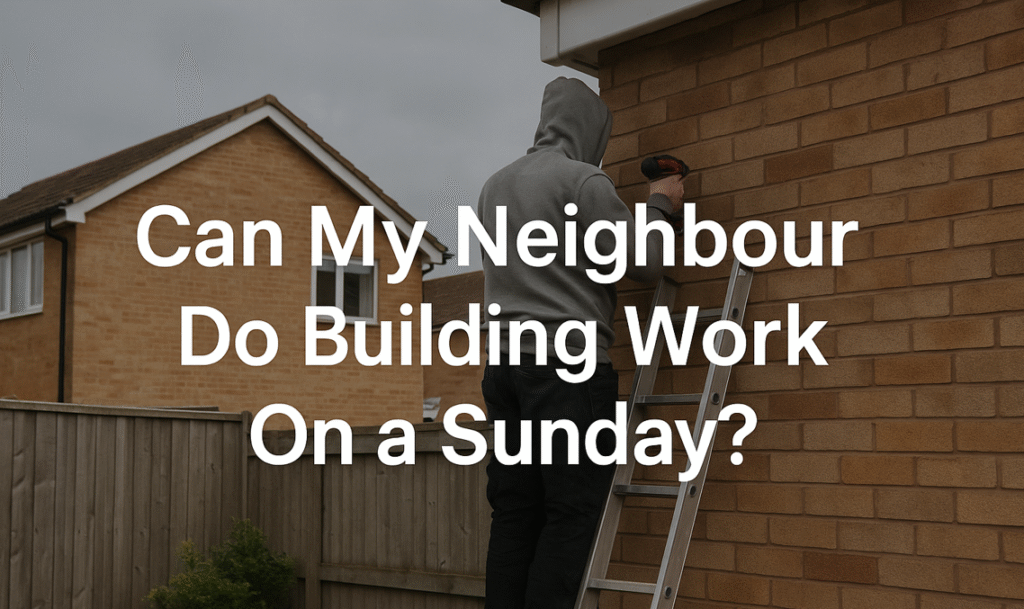If you’re buying a home in a modern UK housing development, you may come across an unexpected detail: an obligation to join a homeowners association or pay estate management fees. While this sounds similar to American-style HOAs, the legal structure and your rights in the UK are quite different.
So, the question arises:
Can you refuse to join a homeowners association?
In this guide, you’ll learn how UK homeowners associations work, whether you’re legally bound to join, and what your rights are when it comes to paying charges or challenging their authority.
Why Are Homeowners Associations Becoming More Common in the UK?

What Is a Homeowners Association in the UK Context?
In the UK, a homeowners association (often referred to as a Residents’ Management Company, or Estate Management Company) is typically set up by a housing developer to maintain:
- Shared roads or pavements not adopted by the council
- Green spaces, play areas, or communal gardens
- Private lighting, drainage, or security systems
- Bin stores or private parking areas
Rather than relying on the local council, residents are expected to fund the ongoing maintenance of these areas through annual service charges.
Why Are They Popular in New-Build Developments?
Developers often choose this model to save on costs and speed up planning approval. By offloading long-term maintenance to residents, they reduce their obligations after selling the properties.
This setup is most common in:
- Freehold houses in new-build estates
- Gated communities
- Private developments with non-adopted infrastructure
How Do They Differ from US-Style HOAs?
While US HOAs typically enforce strict community rules, appearance standards, and even have power to fine or evict homeowners, UK associations are usually focused on maintenance, though some do impose community rules via restrictive covenants.
Can You Refuse to Join a Homeowners Association?

Is It Legally Mandatory to Join a Homeowners Association in the UK?
Yes—in most cases, joining is mandatory, but not because you’re ‘signing up’ to an organisation. Instead, your property title or deed usually includes legal obligations, such as:
- A requirement to pay an estate rentcharge or service charge
- A restrictive covenant requiring you to contribute to maintenance costs
- Automatic membership in a Residents’ Management Company (RMC)
This means you’re not asked to “join” in a voluntary sense—you’re contractually bound as part of owning the property.
Can You Opt Out of Estate Management Fees or Membership?
No, you cannot opt out if the obligation is tied to the property. Even if you never signed a separate agreement, buying the house means you accept the legal conditions attached to the land.
Trying to opt out could result in:
- Legal action from the management company
- Interest and penalties on unpaid charges
- Difficulty selling your home in the future
What Happens If You Refuse to Join or Pay?
If you refuse to pay your annual estate charge, the management company can:
- Charge late payment fees or interest
- Register a restriction on your title with the Land Registry
- Take legal action to recover arrears
- Ultimately, force a sale of the property in extreme cases
Understanding What You’re Signing Up For

What Terms Might Be Hidden in Your Purchase Agreement?
It’s common for buyers—especially first-time buyers and expats—to overlook estate charges in the excitement of buying a new home. These charges are often:
- Buried in small print of the contract
- Mentioned as a “rentcharge” in the transfer deed
- Passed on with little explanation by the developer or solicitor
That’s why it’s vital to ask specific questions about long-term obligations before committing.
Do Homeowners Associations Apply to Freehold Properties Too?
Yes—and this catches many buyers off guard. Even if you own your home outright, you may still be responsible for annual fees to a management company.
This is called a “fleecehold” arrangement—a freehold in name but leasehold in spirit.
What Are Restrictive Covenants and How Do They Affect You?
A restrictive covenant is a binding legal condition written into your property’s title. It might say you must:
- Maintain your garden to a certain standard
- Avoid parking commercial vehicles
- Contribute to shared maintenance
- Not build fences or extensions without consent
These covenants are enforced by the homeowners association or management company.
Common Issues Faced by UK Homeowners in Private Estates

Are You Getting Value for the Maintenance Fees?
Many homeowners feel they pay steep annual fees with little visible return. Issues include:
- Poorly maintained green spaces
- Delayed repairs
- Limited transparency on how money is spent
What If You Disagree with the Services or Charges?
You can raise a dispute with the management company or bring concerns to the First-tier Tribunal (Property Chamber) in England.
Disputes often involve:
- Inflated admin fees
- Vague or unsubstantiated budgets
- Inadequate standards of care
Can You Challenge the Association’s Decisions or Budgets?
Yes, but the process is not always easy. Homeowners can:
- Request detailed accounts
- Attend general meetings (if you’re part of an RMC)
- Band together with other residents to challenge charges
In some cases, you may be able to form your own management company or take over an existing one.
Your Rights and Options as a Homeowner

Can You Legally Dispute Charges or Membership Terms?
Yes, under certain conditions. You may challenge:
- Unreasonable charges
- Lack of transparency
- Poor service or failure to deliver agreed maintenance
Legal remedies include complaints to the Property Ombudsman, Trading Standards, or applying to the First-tier Tribunal.
What Legal Protection Do You Have?
While leaseholders have stronger legal protection under Landlord and Tenant law, freeholders on private estates often have limited recourse.
However, the Law Commission has proposed reforms to give freeholders more rights—so the law may change in the future.
Is It Possible to Take Over or Reform a Homeowners Association?
In some developments, yes. You and other residents may be able to:
- Join the Residents’ Management Company (if allowed)
- Elect new directors
- Take over contracts or renegotiate service agreements
This requires coordination, legal advice, and persistence.
Tips Before Buying a Property with a Homeowners Association

What Questions Should You Ask the Developer or Estate Agent?
- “Is there a homeowners association or management company?”
- “What are the annual charges, and how are they reviewed?”
- “Can I see a copy of the agreement or deed?”
- “What happens if I don’t pay or disagree with the charges?”
Should You Get a Solicitor to Review the Contract?
Yes—ideally one with experience in new-build or private estates. They can flag:
- Hidden rent charges
- Restrictive covenants
- Rights to participate in management decisions
Can You Negotiate or Avoid Signing Certain Agreements?
Usually, no. These obligations are tied to the land and non-negotiable for most buyers. However, a solicitor can help you understand:
- The true cost of ownership
- Your long-term risks
- Whether it’s worth walking away
Summary of Homeowners Association Rules in the UK
| Topic | UK Situation |
| Can you refuse to join? | No – Obligations are tied to property ownership |
| Applies to freehold homes? | Yes – Especially on new-build estates |
| Can charges be disputed? | Yes – Through tribunals or ombudsman |
| Are rules negotiable? | Rarely – Usually fixed in deed or contract |
| Legal protection for freeholders? | Limited – Proposed reforms may improve this |
| Can homeowners take over control? | Sometimes – Via RMC membership and collective action |
Conclusion: Know Your Rights Before You Commit
So, can you refuse to join a homeowners association in the UK?
In most cases, you cannot—because your obligations are tied to the property itself, not your personal consent.
Before buying, make sure you:
- Understand what you’re signing up for
- Read the title deed and management terms
- Ask the right legal and financial questions
- Know how to challenge unfair practices
With the right preparation and advice, you can avoid surprises and make an informed decision about whether a property with HOA-style obligations is right for you.
FAQs About Homeowners Associations in the UK
Can a Homeowners Association Increase Fees Without Consent?
In most cases, yes. The agreement often allows annual increases linked to inflation or budget needs—without resident approval.
What If the Developer Still Controls the Association?
This is common in new developments. Developers retain control until a certain number of homes are sold. During this time, fees may be high and services poor, with little resident input.
Are You Liable for Arrears from Previous Owners?
Yes. Unpaid estate charges can transfer with the property, so always ask for a clearance certificate before buying.
Can a Homeowners Association Take You to Court?
Yes. If you fail to pay or breach your obligations, they may:
- Add interest or penalties
- Place a restriction on your property title
- Pursue legal recovery or forced sale in extreme cases
I’m Laura Wilson, a passionate blogger and content creator with a deep interest in business, finance, and entrepreneurship. I’ve had the opportunity to write for several premium blogs, sharing insights & practical advice for individuals & small businesses. I’m the founder and publisher of ukbusinessmag.co.uk, where I focus on creating valuable, easy-to-understand content to help UK startups & SMEs grow.



